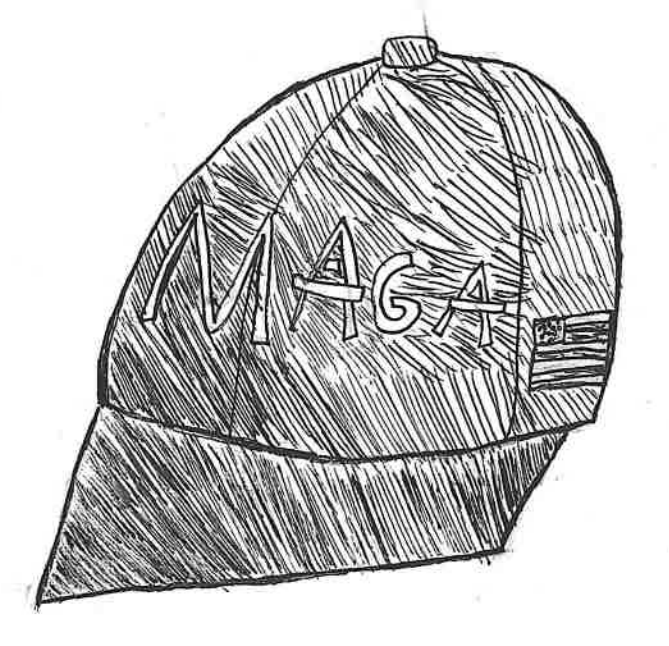Elon Musk, billionaire and businessman, made headlines in 2017 when he stepped down from President Donald Trump’s advisory councils over climate change. Trump himself fired a particularly colorful epithet at Musk on right-wing social media site Truth Social for saying that he had never voted for a Republican candidate before a special election in Texas. However, in 2025, it’s safe to say that Musk switched sides, proudly flexing his newfound influence over governmental leadership. But how did we get to this point?
Elon Musk had also been inching closer to Trump as soon as he became president-elect last November. He has participated in phone calls with foreign leaders and visited the Oval Office, among other high-profile events, drawing attention to his growing influence within the Trump administration. He was even handed over the phone in a call with Ukrainian President Volodymyr Zelenskyy, in which Trump discussed foreign policy shifts, expressing support for Ukraine but not going into detail. Musk is getting involved in international discussions and, by extension, seemed to stand as the president’s right-hand man by the time of Trump’s inauguration.
It started in Silicon Valley, California—home of technological innovations yet diverse political views. Vice President Kamala Harris had great support from many tech giants like LinkedIn co-founder Reid Hoffman and venture capitalist Leslie Feinzaig, in part because she’s a former senator from the Golden State and has been involved in Bay Area politics for years.
However, Musk is part of a small group of investors and tech leaders who have become more supportive of Trump over the last eight years. These individuals saw Trump as “more welcoming of bold ideas.” The Biden Administration was pro-union, while Musk, famously, is anti-union, and thus, during its sizeable Electric Vehicle (EV) summits, where President Joe Biden would talk about the EV revolution, not one word of Musk would be heard.
“My impression of his relationship with Tesla and EVs is this: Musk, like all CEOs with fiduciary responsibilities, is primarily focused on increasing market share and company valuation,” Columbia Heights High School Engineering teacher Mr. Christian Arel said. “In the case of Tesla, this goal would necessarily lead to advancements in sustainable energy solutions and climate change mitigation.”
The Biden Administration also cracked down on technology, strengthened policies on both Crypto and Artificial intelligence (AI) and strengthened policies that limited free speech. Consequently, these choices left Musk with no warm feelings for anyone associated with the Biden Administration, including former Vice President Harris. Since Trump appealed more to his interests, Musk began moving his chess pieces. He created a PAC (Political Action Committee) in support of Donald Trump’s election bid, to which he donated more than $118 million.
But his support doesn’t end with being a patron. He also utilizes social media platform X (formerly known as Twitter) as what press outlets like NBC are calling a MAGA (Make America Great Again) “mouthpiece,” supporting pro-Trump postings and letting a fair share of conspiracy theories generate in the platform along with it. Musk also hosted a $1 million sweepstakes for Republican voters in swing states, which many saw as controversial. Despite allegations aimed against the billionaire for illegal activity, no lawsuit passed. This was due to Philadelphia’s top prosecutor failing to convict him of any charges.
Leading up to inauguration, Musk also spent time with Trump nearly every day at Mar-a-Lago. He was additionally spotted dining with first lady Melania Trump and golfing with the Trump family. Reactions to his underscoring presence within the circle have varied. Though Trump appears content with Musk’s counsel and company as of now, at least one member of his team views the CEO as the “guest that wouldn’t leave.”
Despite these outcries against his involvement with the government, Musk decided to take things a step further and create a federal agency called the Department of Government Efficiency, otherwise known as DOGE. The focus is to reduce waste, improve government performance and cut costs. Despite accounts saying that Trump has taken a strong liking to Musk’s slash-and-burn approach and actively encourages it, DOGE has elicited a myriad of complaints, claiming that the multi-billionaire’s efficient methods are ironically slowing down government bureaucracy, given the fact that nearly 40% of most contracts canceled by DOGE aren’t predicted to contribute to saving the government costs.
Federal workers forcibly installed in the department feel that their profession has descended into chaos. For example, during one weekend, Musk issued an email asking federal employees to reply with their five most recent accomplishments at work and stating that the failure to respond would result in dismissal from their jobs. Multiple companies stepped in and reassured their employees that a response wasn’t needed. Simultaneously, Trump weighed with his opinion that it was a brilliant idea and said federal workers should consider themselves fired or semi-fired if they failed to respond. Musk eventually conceded, stating later that this was only the initial round and they would be given a second chance. A few hours before the next deadline, the Office of Personnel Management told federal workers that they wouldn’t be dismissed if they didn’t respond, which many already had at the time.
“Elon Musk is using his undeserved power to spread more hate than good,” Adam Smith (12) said. “He is wildly misinformed, unprofessional and believes human empathy is the ‘greatest weakness of western civilization,’ yet the creator of the social Darwinist philosophy Musk got that idea from concluded that the only reason human beings took over the world the way we did was due to the power of empathy.”
Multiple insiders predict these two men will eventually break their alliance. The thinking is that if their controversial and big personalities perhaps clashing don’t end up breaking them apart in the long run, declining public perception of Musk and/or Trump might. This holds high skepticism in the long run, their dynamic posing a significant discussion over power and whether the United States is falling under an oligarchy.









